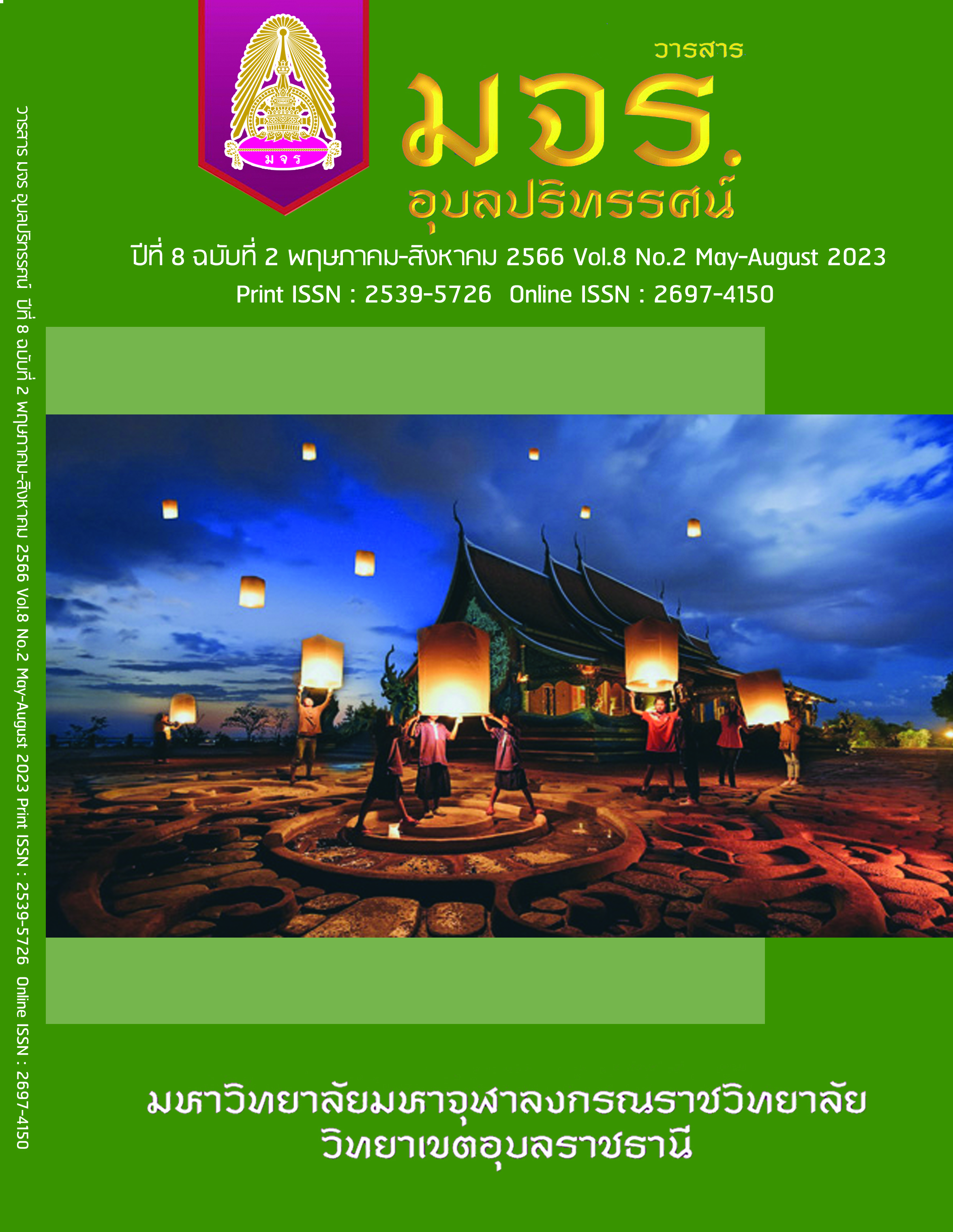The Impact of Electronic Service Quality toward Customer’s Satisfaction and Decsion ON USING Hotel ServiceS in the Middle Northeast during the COVID-19 Pandemic
Main Article Content
Abstract
This research aims to investigate how electronic service (e-service) quality affects the customer’s satisfaction and decision to use hotel services in the middle northeast during the COVID-19 pandemics in which the study was conducted on a group of 294 customers who used the services in the hotels in the middle northeast. The data had been collected via the questionnaire before it was analyzed with the statistical methods including percentage, standard deviation, multiple correlation analysis, and multiple regression analysis. The results were found as follows. Based on an analysis on the relationship and impact, it was found that: 1) Electronic Service Quality including Data Reliability, Service Availability on All Platforms, Spontaneous Repose, and Safety had a significant relationship with and a positive impact on the customer’s satisfaction; 2) Electronic service quality including Ease of Access and Safety had a significant relationship with and a positive impact on the customer’s decision to use the services in the hotels in the middle northeast. Accordingly, the hotel owners in the middle northeast should put their first priority on providing the customers with reliable services that is simply accessible and available on all platforms with safety so that they feel confident and secured for their personal information and property while staying in the hotels; these factors would satisfy and encourage the customers to confidently decide to use services in the hotels and in return the hotel business could be firmly growing in the current state of economy.
Article Details
References
ขวัญชนก สุวรรณพงศ์. (2559). การพัฒนาคุณภาพการบริการของโรงแรมในอำเภอเมือง จังหวัด
ภูเก็ต เพื่อรองรับนักท่องเที่ยวกลุ่มความสนใจพิเศษ. นนทบุรี: มหาวิทยาลัยราชพฤกษ์.
ทัศน์พล แสงสี. (2559). ความสัมพันธ์ระหว่างคุณภาพการบริการอิเล็กทรอนิกส์ของสายการบินต่อ
การรับรู้ความเสี่ยงการใช้บริการของผู้บริโภค.บัณฑิตวิทยาลัย :มหาวิทยาลัยสงขลานครินทร์.
ธนาภรณ์ ทัศนภักดิ์. (2562). แนวทางการพัฒนาคุณภาพการบริการของโรงแรมสวนวรุณ
มหาวิทยาลัยราชภัฏมหาสารคาม. มหาสารคาม: มหาวิทยาลัยราชภัฏมหาสารคาม.
พัฒนา พรหมณี. (2563). แนวคิดเกี่ยวกับความพึงพอใจและการสร้างแบบสอบถามความพึงพอใจ
ในงาน.วารสารวิชาการสมาคมสถาบันอุดมศึกษาเอกชนแห่งประเทศไทย (สสอท.).
ปีที่ 26 ฉบับที่ 1 เดือน มกราคม-มิถุนายน 2563 : 61-62.
ภานุพงศ์ ลือฤทธิ์. (2560). คุณภาพการบริการอิเล็กทรอนิกส์ในการสร้างความพึงพอใจของผู้ใช้งาน
: กรณีตัวอย่างของแอปพลิเคชันกระเป๋าเงินบนโทรศัพท์มือถือ. บัณฑิตวิทยาลัย :
มหาวิทยาลัยธรรมศาสตร์.
ศิริลักษณ์ โรจนกิจอำนวย. (2556). คุณภาพการให้บริการอิเล็กทรอนิกส์ของการท่องเที่ยว
อิเล็กทรอนิกส์ไทย. จุฬาลงกรณ์ธุรกิจปริทัศน์, 35(137), กรกฎาคม-กันยายน.
ศูนย์วิจัยเศรษฐกิจและเศรษฐกิจฐานราก. (2560). รายงานสถานการณ์และแนวโน้มธุรกิจ/
อุตสาหกรรม ประจำไตรมาส 4 ปี 2560. กรุงเทพฯ: ศูนย์วิจัยเศรษฐกิจและ
เศรษฐกิจฐานราก.
อาชนัน เกาะไพบูลย์ และเพชรธรินทร์ วงศ์เจริญ. (2563). การปรับตัวของผู้ประกอบการ
ท่ามกลาง COVID-19: บทวิเคราะห์ข้อมูล Survey. สืบค้นเมื่อ พฤษภาคม 2564.
จาก https://waymagazine.org/covidpolicy-brief-3.
Black, W. C. (2006). Multivariate Data Analysis. 6th ed. New York: Prentice Hall.

